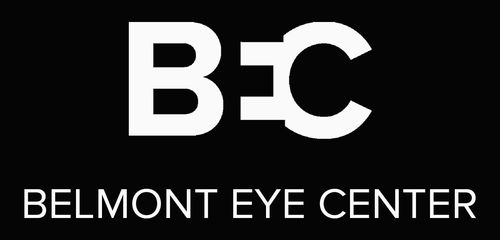Eye News & Education,LASIK Education & News
As we age, our eyesight naturally changes — but significant vision loss is not inevitable. In fact, many of the most common causes of blindness in adults over 50, such as glaucoma and macular degeneration, can often be delayed or even prevented with simple lifestyle changes. At Belmont Eye Center, we believe that protecting your vision starts long before you notice symptoms.
1. Prioritize Regular Eye Exams
Annual eye exams are the single most important step in preserving your sight. Diseases like glaucoma are often called “the silent thief of sight” because they cause irreversible damage before symptoms appear. A comprehensive eye exam can detect subtle changes in eye pressure, optic nerve health, and retinal structure — allowing for early treatment before vision loss occurs.
2. Eat a Vision-Protecting Diet
Your diet plays a major role in eye health. Nutrients like **lutein, zeaxanthin, omega-3 fatty acids, and vitamins C and E** have been shown to reduce the risk of macular degeneration and cataracts. Incorporate leafy greens, citrus fruits, fish rich in omega-3s (like salmon and sardines), nuts, and colorful vegetables into your meals. Limiting processed foods and excess sugar also helps maintain healthy blood vessels in the retina.
3. Manage Blood Pressure and Blood Sugar
High blood pressure and diabetes are leading causes of vision problems in older adults. Over time, they can damage the tiny blood vessels in your eyes, leading to **diabetic retinopathy** or **hypertensive retinopathy**. Keeping your blood sugar and blood pressure within a healthy range protects both your overall health and your eyesight.
4. Protect Your Eyes from UV Damage
Ultraviolet (UV) rays accelerate the breakdown of eye tissues and increase the risk of cataracts and macular degeneration. Always wear **UV-blocking sunglasses** and a wide-brimmed hat when outdoors — even on cloudy days. Choose lenses labeled “100% UV protection” or “UV400” for full coverage.
5. Stay Active — Your Eyes Depend on It
Exercise improves blood circulation, which enhances oxygen delivery to the eyes and removes toxins that can accumulate in the retina. Aim for at least 30 minutes of moderate activity, such as walking, swimming, or yoga, most days of the week. Even small increases in daily movement can have measurable benefits for long-term eye health.
6. Get Quality Sleep and Manage Stress
Chronic stress and poor sleep can lead to increased intraocular pressure and dry eyes. Prioritize consistent sleep and stress-reduction techniques such as meditation or gentle stretching. Your eyes — and your body — will thank you.
Protect Your Vision with Expert Care
If you’re over 50, now is the time to take proactive steps toward lifelong eye health. At Belmont Eye Center, our experienced team offers advanced diagnostics and treatment options for glaucoma, cataracts, macular degeneration, and more. Schedule a comprehensive eye exam today and take control of your vision before problems start.
